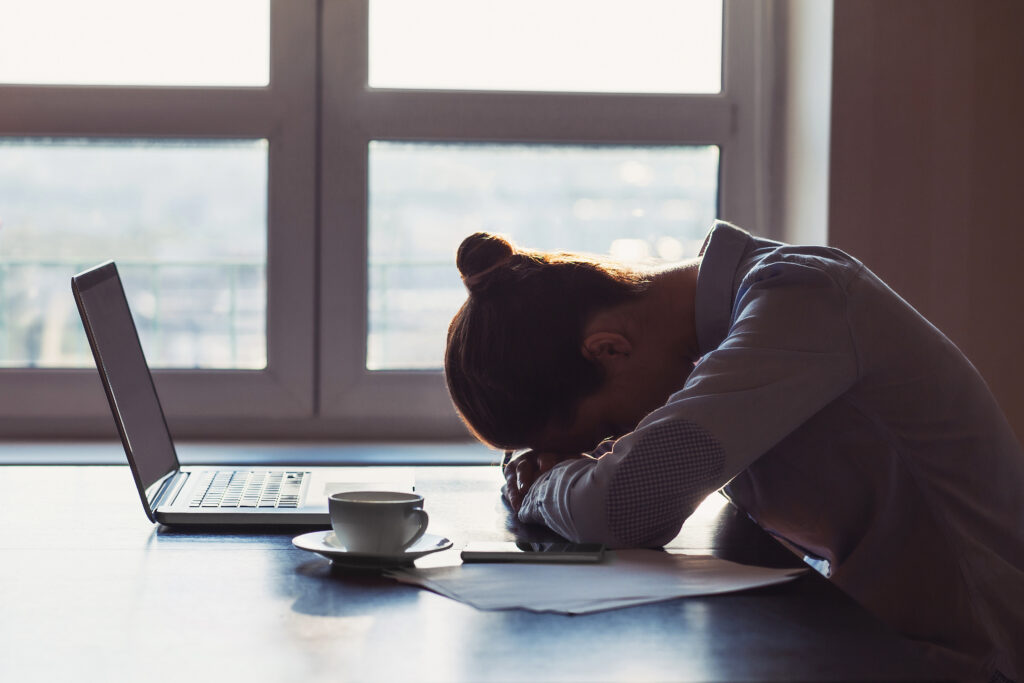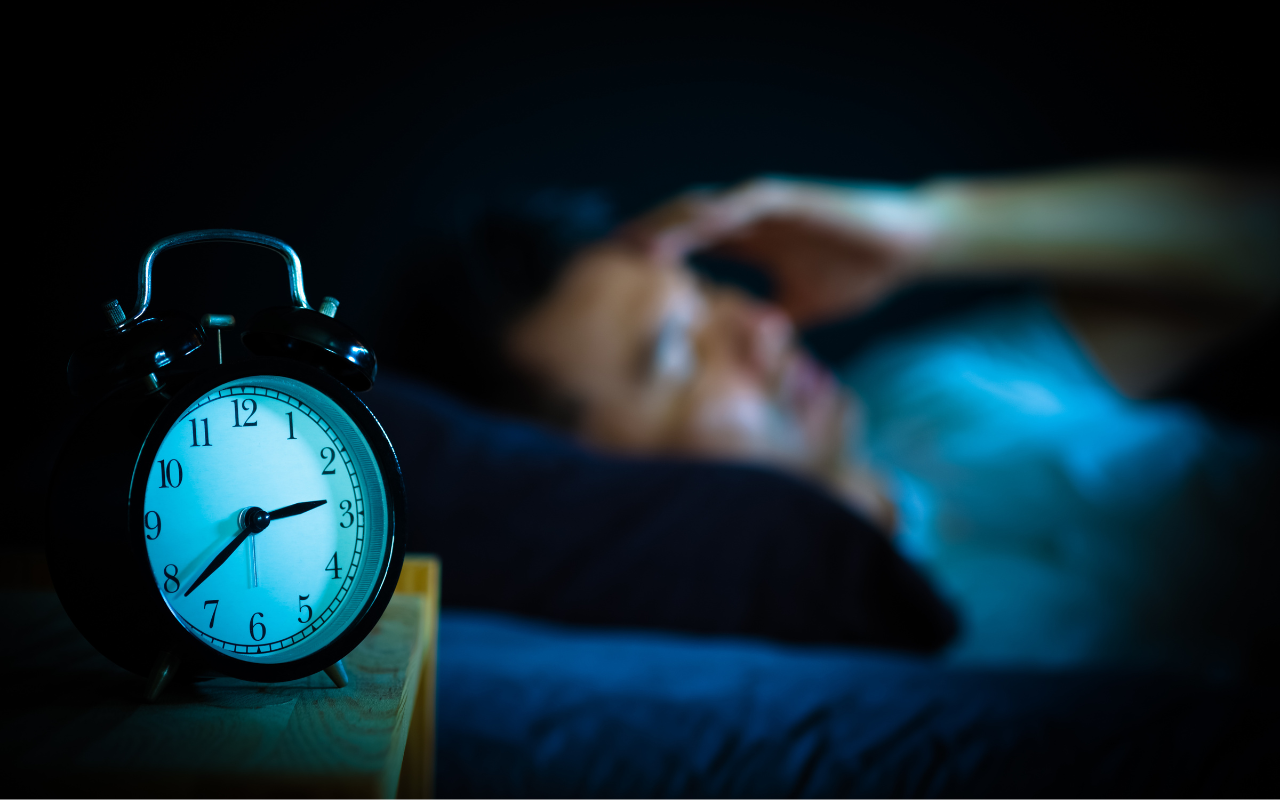A new study shows insomnia and other sleep disorders are driving reduced productivity for younger Australians, prompting the researchers to begin developing more resources to help GPs diagnose and manage these conditions.
Researchers who led a study published today in The Medical Journal of Australia have said general practitioners need more support in diagnosing and managing insomnia, after they found a surprising number of young people with undiagnosed sleep disorders.
Associate Professor Amy Reynolds, a clinical epidemiologist and provisional psychologist, from Flinders University co-led the study, which showed one-fifth of 22-year-olds had insomnia, obstructive sleep apnoea, or restless legs syndrome.
The most common condition was insomnia, with the study showing the disorder is largely undiagnosed in young people.
“The take home is just how prevalent sleep disorders are in young adults, and that these disorders have an impact,” Associate Professor Reynolds told InSight+.
Workplace productivity impacted
The study showed that total workplace productivity loss was 40% greater among 22-year-old Australian workers with clinical sleep disorders.
This is equivalent to total workplace productivity loss (across 12 months) of about four weeks for young people with clinically significant sleep disorders, compared with less than one week for those without.
“By middle age, it’s obstructive sleep apnoea that’s more prevalent (here), so it does change across the lifespan,” said Associate Professor Reynolds.
“But in young workers it is insomnia, rather than other sleep problems, driving productivity loss.”

Associate Professor Reynolds said that the distinction between missing work and quality of work was significant.
“For me, the most interesting part is that it’s not that [young people] aren’t going to work,” says Associate Professor Reynolds.
“The productivity loss we saw is not driven by absenteeism, or days off. It’s what we call presenteeism which is impacting their productivity.
“So, they’re at work, but they’re just not working to their best capacity or potential.
“One of the biggest challenges for primary care is that often insomnia either isn’t diagnosed or it’s not receiving appropriate management,” said Associate Professor Reynolds.
Medications versus CBTi: the challenges of managing sleep conditions
“The first line treatment for insomnia is CBTi (cognitive behavioural therapy for insomnia),” said Associate Professor Reynolds, who points to a research article from Flinders University showing that many GPs are prescribing medications first.
“GPs report that managing insomnia can be challenging,” said Associate Professor Reynolds.
“There’s been a shift in recent years [away from] sleep medications, but other treatment pathways can be difficult, even though medications are perceived as a Band-Aid.”
Associate Professor Reynolds acknowledged the challenge of access to psychological services in Australia but said that options are being explored and developed.
“There is some suggestion that more condensed treatment for insomnia – what’s called brief behavioural therapy for insomnia, which can be administered by practice nurses – could also be useful within the general practice setting,” Associate Professor Reynolds said.
“There’s a current National Health and Medical Research Council [NHMRC] funded grant out of our group which is looking at exactly that.”
Making CBTi more accessible for GPs
Associate Professor Reynold’s study co-author, Professor Robert Adams, is Professor of Respiratory and Sleep Medicine at the Adelaide Institute for Sleep Health.
“I think the main issue in primary care is the ability to access appropriate care for sleep disorders,” said Professor Adams.
Professor Adams is also a Chief Investigator at the MOSIP (Management of Sleep Apnoea & Insomnia in Primary Care) trial.
The trial is a multidisciplinary group established with the specific goal of providing useful, science-based resources for general practice for the screening and management of sleep disorders in response to this significant pressure on the Australian health care system.
The goal of the trial is to provide a suite of sleep disorders management packages for use by general practice.
The trial’s website states that sleep disorders affect more than 4 million Australians and cost $66 billion a year.
Professor Adams said that developing CBTi resources for use by GPs will be critical.
“CBTi has a very strong behavioural component related to bedtime restriction to promote ‘re-learning’ how to get to sleep, and modifying waking behaviours that affect sleep,” said Professor Adams.
“The cognitive component focuses on addressing understanding and beliefs about sleep that may be hindering getting good sleep.
“Evidence-based resources and information to manage obstructive sleep apnoea and insomnia are available (here).”
The recommendations were developed according to published, peer-reviewed literature and the level of evidence for treatment is based on GRADE ratings, said Professor Adams.
They were developed by GPs and an expert reference group from the National Centre for Sleep Health Services Research.
“They are an accepted clinical resource of the [Royal Australian College of General Practitioners],” said Professor Adam.
“Essentially, there is good evidence from randomised controlled trials that GPs can manage uncomplicated sleep apnoea and insomnia if provided with access to the right tools, equipment and funding, and training in how to use them.
“There are, however, barriers to providing all those things in the current system in Australia – and across the world, really,” he said.
Professor Adams said that the function of the MOSIP trial is to provide those resources to be used by GPs across the country.
GPs can find additional resources on the sleep care resources website.
Subscribe to the free InSight+ weekly newsletter here. It is available to all readers, not just registered medical practitioners.

 more_vert
more_vert
As a baby boomer parent I am aware t hat my children in their late adolescence and 20’s forced a different sleep pattern. Ww would only go out Friday sat and be in bed by 12. But the next generation were group conned to go out at 10.00_12.00 and party with excessive alcohol and drugs to early am . Totally stuffing up their circadian rhythms for years.